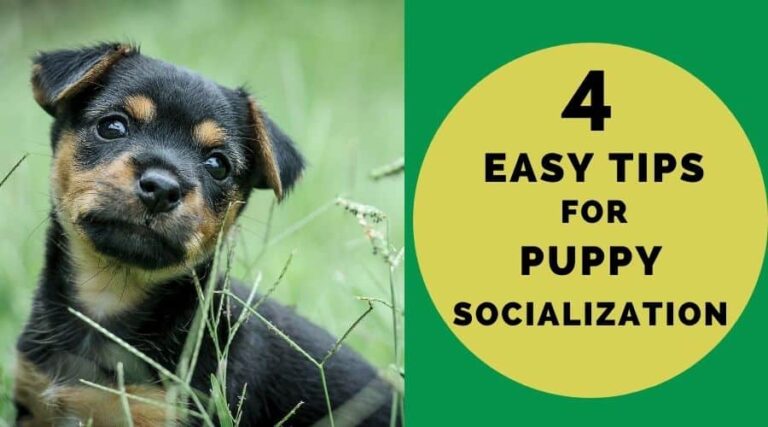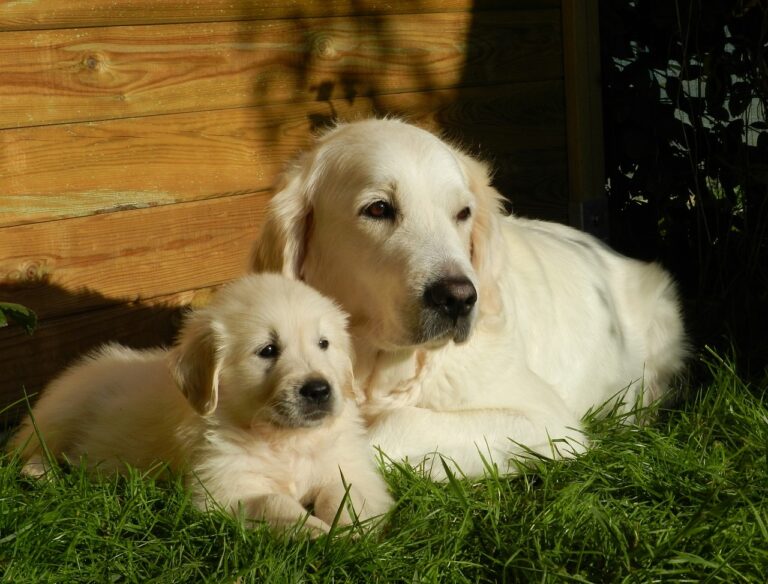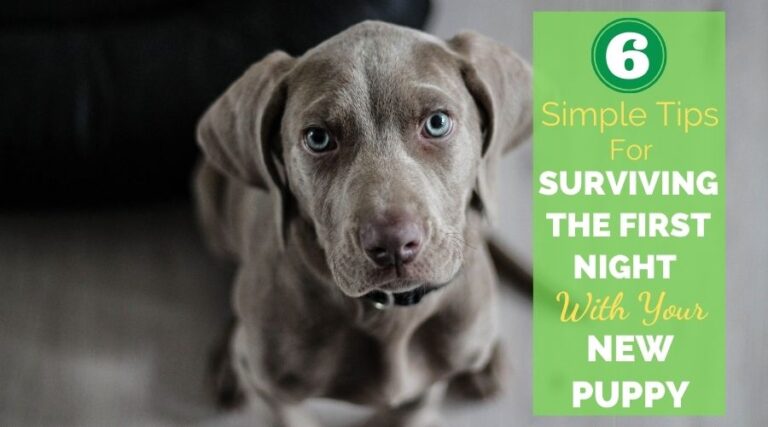{This post may contain affiliate links. This means we may make a small commission at no extra cost to you. This website is a participant in the Amazon Services LLC Associates Program. As an Amazon Associate we earn from qualifying purchases. We only recommend products that we believe will be of value to our followers. Click HERE to see our disclosure for details.}
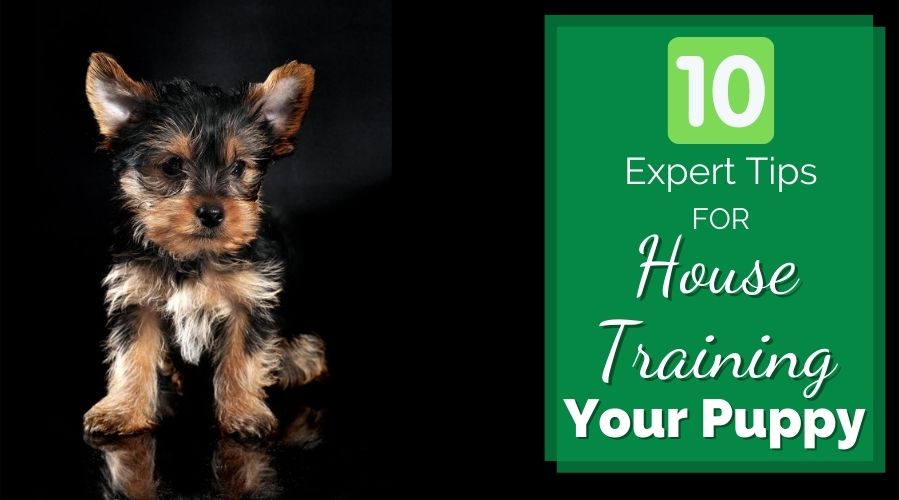
When it comes to house training a puppy there is so much varying information out there. From sites claiming to be able to potty train your puppy in 7 days to waiting until they are 12 weeks old to start house training them. Unfortunately, there is no quick fix to potty training a puppy. It takes consistency and patience. Some puppies pick it up very quickly and some puppies take a bit longer, no matter what method you use.
If you are lucky, your breeder has already started house training your puppy for you. My last puppy from a breeder was already going outside for potty breaks before I brought him home. With consistency, patience and crate training, he was house trained very easily. Even if you didn’t get your puppy from a breeder, with these tips you will be well on your way to having a house training a puppy in no time at all.
By now you’ve probably heard that puppies like to be clean and not soil the area where they sleep. This is true BUT if they came from a place where they were not kept clean, this could change. A puppy that was not kept clean can be much more difficult to potty train. So, how your puppy was raised before you got him can definitely affect how quickly and easily you can house train him.

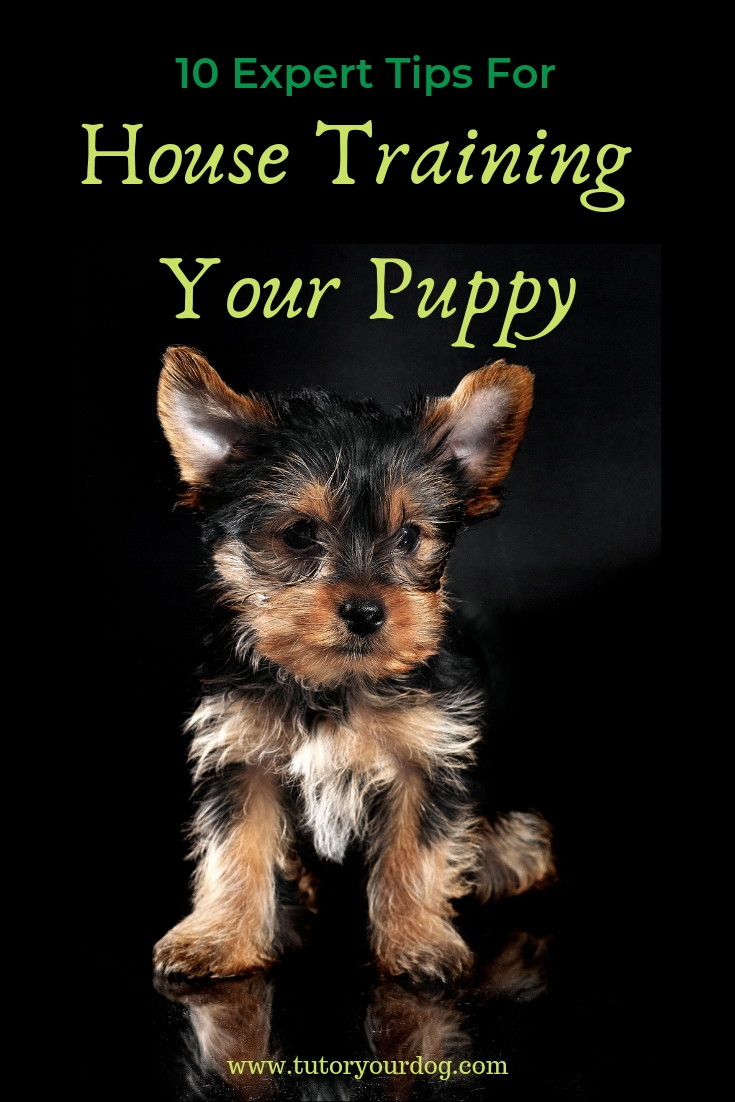
Tips For House Training Your Puppy
1. Crate Train
A crate is one of the best tools for house training a puppy. If your puppy wasn’t crate trained when you got him, that is something that you should work on right away. A puppy that was raised in a clean environment will not want to potty in his crate. So, when you cannot supervise him, place him in his crate (make sure that he was taken outside for a pee break first though). You can give him a safe and durable toy to chew on while he is in there, just make sure that it is not something that could be a choking hazard or something that he could ingest.
Of course, if your puppy is still very young, you cannot leave him in his crate for more than a few hours. It is hard for young puppies to control their bladder so if they are left in their crates for more than 2 or 3 hours they may have an accident. As they get older this time will increase but until then you will need to make arrangements for someone to let him out for a potty break if you are not at home.
Click on the photos below to check out these crates on Amazon.



2. Always Supervise Your Puppy
When your puppy is out of his crate, you should be constantly supervising him. Watch for any signs that he may need to relieve himself. These signs include sniffing the floor, circling or whining. If you see your puppy displaying any of these behaviors, take him outside right away.
3. Take Your Puppy Outside For Potty Breaks Frequently
Puppies need to go outside frequently, especially when they are first learning that the place to potty is outdoors. They will need to go outside in the morning as soon as they wake up. Sorry, no time to get yourself a coffee first! Get him outside right away and wait with him until he relieves himself. He will need to go outside after every meal, after every nap and after every play session. A good habit to get into is to take him outside every half hour to an hour.

4. Stick To A Schedule
Create a schedule for your puppy and try to stick to it. Having a puppy on a schedule makes it easier to plan when he will need to go outside for his potty breaks. Puppies need to relieve themselves shortly after they eat. If you have set times that you feed your puppy it will be easier to know when to take him outside. Puppies who are “free fed’, meaning that they have access to food all day, are generally harder to figure out when they need to go outside for a potty break.
Related Articles: Setting Up A Routine For Your New Puppy
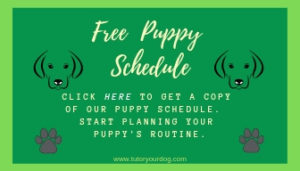
5. Do Not Free Feed Your Puppy
Free Feeding is when you give your puppy his bowl of food and he doesn’t eat it all at once and just picks away at it all day. Puppies need to relieve themselves shortly after they eat. If you have set times that you feed your puppy it will be easier to know when to take him outside. Puppies who are “free fed’, are generally harder to figure out when they need to go outside for a potty break. Puppies should be fed 3 times a day. So, the easiest way to do this is to feed him around the same time as your meals. If he does not eat all of his food, pick it up and try him again later.
6. If You Do Not Catch Your Puppy Having An Accident Do Not Punish Him
When your puppy has an accident while you aren’t watching and you find it after he’s already finished, there isn’t much you can do except clean it up and take him outside. If you don’t correct your puppy at the exact time he is performing the act, he will have no idea what you are correcting him for. Dogs live in the moment and correcting or praising them for something that you didn’t actually catch them doing will not work.
If you don’t catch the puppy having an accident, clean it up really well and take him outside. If you do catch him while he’s having the accident, say No in a firm voice and immediately take him outside. Do not yell at the puppy and do not rub his nose in the accident. Doing things like this will only make your puppy afraid of you and in the end it will take him longer to house train.
7. Praise Your Puppy When He Potties Outside
When you have a puppy, chances are you have a pocket full of treats. Of course, puppy’s can’t handle a lot of treats but tiny bite size treats are ok in moderation. When you take your puppy outside and he relieves himself, praise him. Make sure that he knows that you are happy and that this is the behavior that you want. Reward him by telling him what a good boy he is, playing with him, taking him for a walk or giving him a treat. He will quickly learn that relieving himself outdoors is exactly what you want him to do.
Click on the photos below to check out these dog treats on Amazon.




8. Take Him To The Same Spot Each Time
When you are house training a puppy, take him to the same spot to potty each time, he will learn what you want him to do. He will smell that he went there before and it will make him more likely to pee there again. Eventually, you will want to put a command to this. I use, “Go pee”, but you can use “Go Potty” or whatever works best for you. Remember, you may use this command out in public at some point so keep that in mind when you deciding on what command to put with this action. Having a command for your puppy to go potty will help know what you want when you take him to other locations.
9. Stay Outside Long Enough For Your Puppy To Potty
At times taking your puppy outside to potty can be time consuming. They often have to sniff around and they get distracted pretty easily. Make sure that you give your puppy enough time to find just the right spot before bringing him back inside. If he doesn’t relieve himself in 5 or 10 minutes, take him for a short walk and then try again. If your puppy doesn’t potty not matter what you do, take him back inside and try again later.
10. Clean Up With Enzyme Cleaners
If you clean up your puppy’s accidents with regular cleaners, they may not totally eliminate the scent. If your puppy can still smell the scent, he may end up having another accident in the same place. Enzyme cleaners will eliminate the scent so that your puppy will no longer be drawn to that spot to potty.
Click on the photos below to check out these enzyme cleaners on Amazon.


House training a puppy takes a great amount of consistency, time and patience. But if you stick to these guidelines, your training will go a lot faster. Always keep in mind, though, that not all puppies will be easy to house train. The amount of time it takes to train a puppy depends on how the training is being done, how they were raised and their breed.

